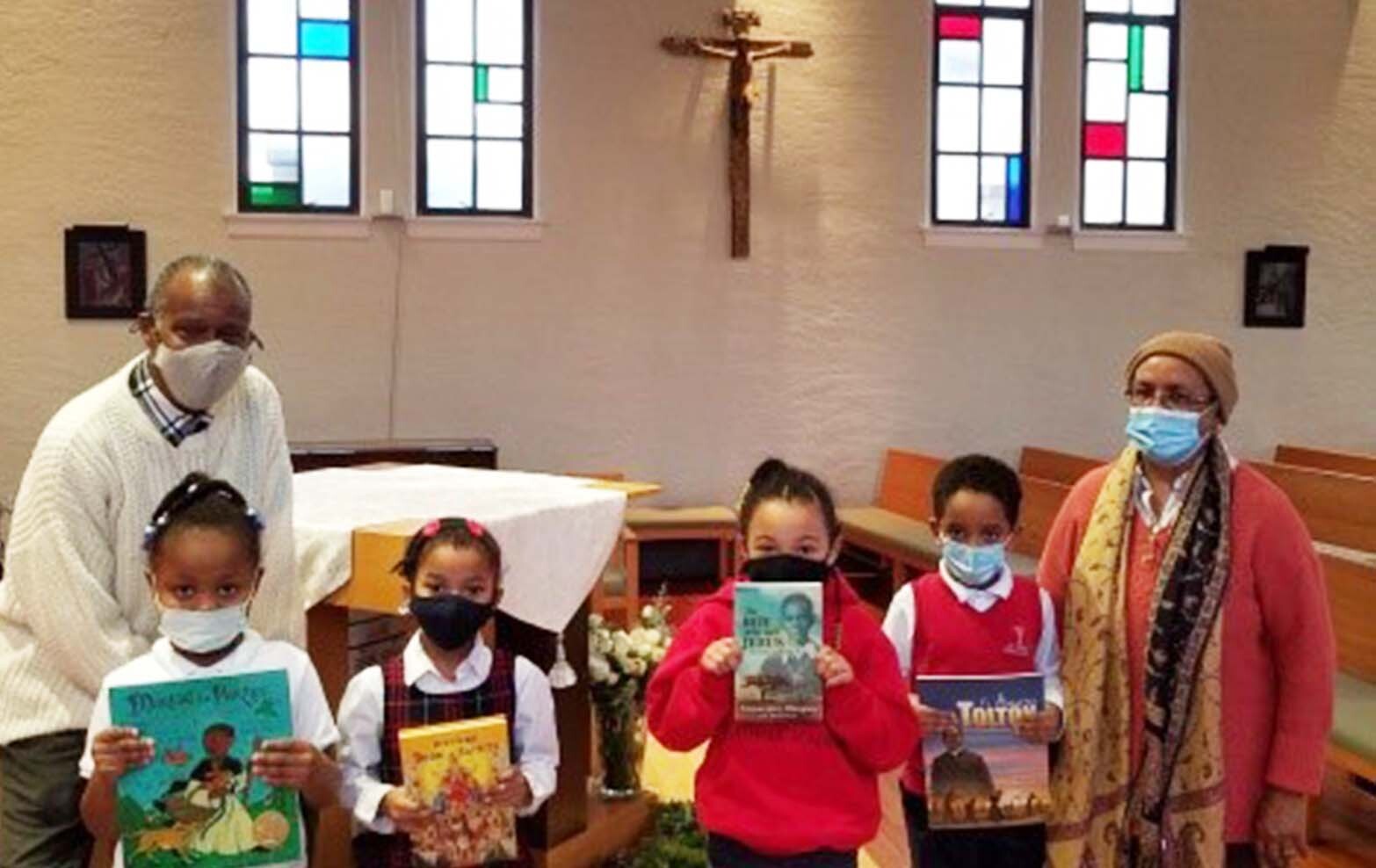Each November, the Black Catholic Advisory Circle (BCAC) of the Archdiocese of Seattle celebrates Black contributions to the Catholic Church during Black Catholic History Month. In 2021, the BCAC formed the Book Sponsorship Program to donate books about Black Catholics to four partner schools participating in the Fulcrum Becraft Scholars Program.
“We have a number of educators and parents in the BCAC, so we understand that books introduce kids to the world of imagination,” said Barbara Connor, the director of religious education at Immaculate Conception Seattle and a member of the BCAC. “We thought that the Becraft Scholars—as well as all the other kids—should have some books that were representative of their own ethnicities that would capture their interest and increase their knowledge.”
The BCAC learned of Fulcrum’s equity-driven scholarship program from Alana Bell, the Becraft Scholars program director. Together, members of the advisory circle—who come from 11 different parishes in the Archdiocese of Seattle—curated a list of books about Black Catholics. They purchased 36 books from Eso Won Books, a Black-owned bookshop in California, and hand-delivered them to the schools.
“We wanted children to discover the contributions of Black Catholics to the Church and also help them understand how God sees them,” explained Barbara. “We hope that these books will allow these children to have a sense of belonging; to know that they belong to the sacraments, to the Bible, and to God. We wanted the Becraft Scholars, and all the students, to form positive associations about being Black and help them understand that God loves them as they are.”
As a former principal, Barbara hopes that educators in Catholic schools will use the books as teaching opportunities. “I want educators in Catholic schools to make a concerted effort to help our children of color belong to the Catholic Church—to see themselves in the Church and know that God is always with them. So that in those moments of disappointment, moments of being excluded, or experiencing hatred, they know they can always rely on a God who loves them. That can only happen if we have the curriculum and material to address it.”
